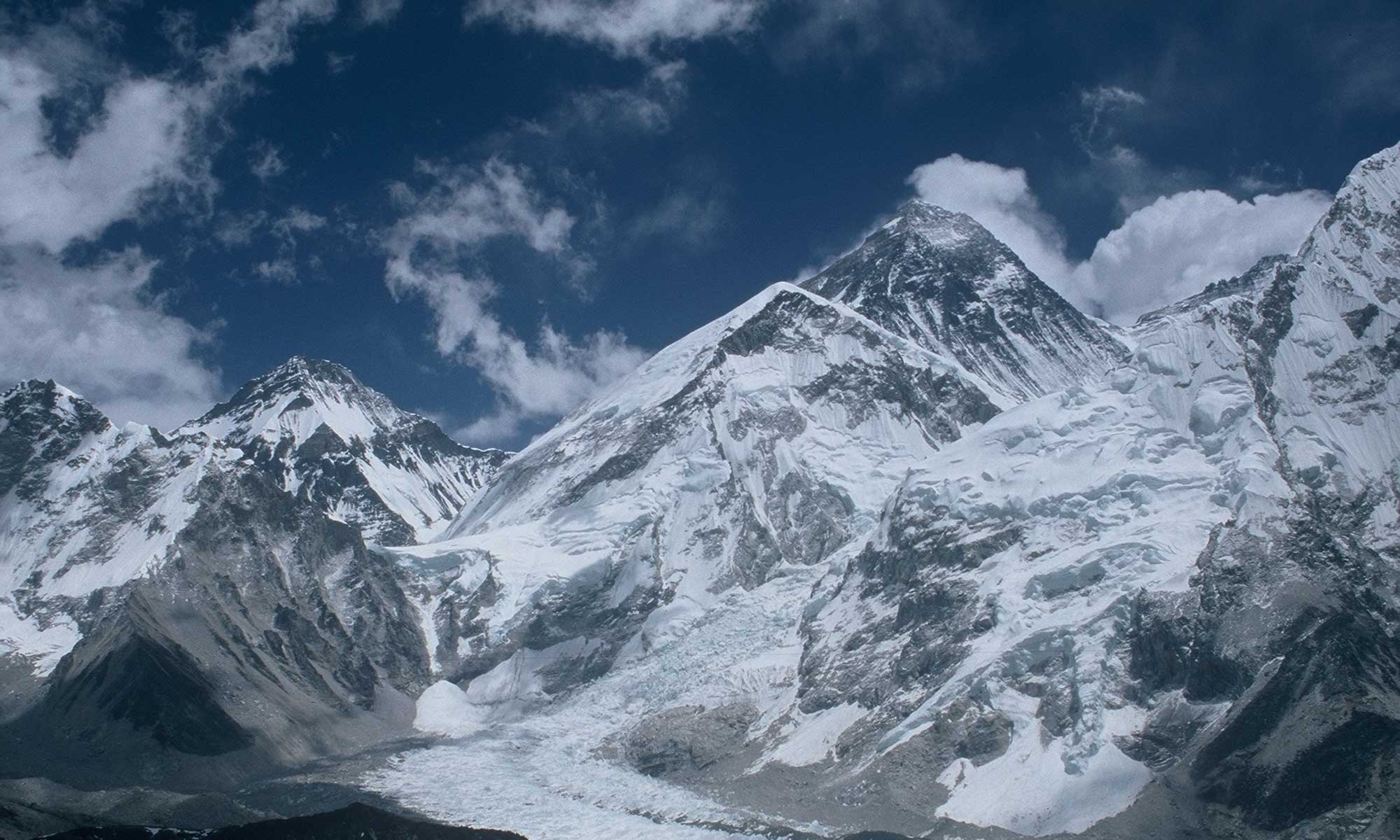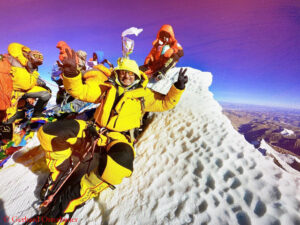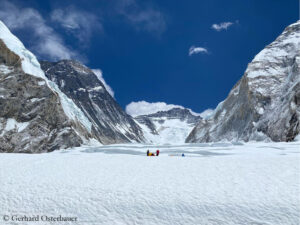“Maybe I set a record: 30 years for the Seven Summits!” says Gerhard Osterbauer and laughs. The 53-year-old Austrian reached the highest point of Mount Everest at 8,849 meters last Friday at 7:15 a.m. local time – with bottled oxygen – as one of more than 400 climbers who ascended to the summit via Nepal’s south side over the past week and a half.
“Incredible experience”
Gerhard had scaled his first of the Seven Summits, the highest mountains on all continents, already in 1992: Kilimanjaro (5,895 meters, Africa). In 2002 followed Aconcagua (6,962 meters, South America), in 2003 Elbrus (5,642 meters, Europe), in 2004 Denali (6,194 meters, North America), in 2005 Mount Vinson (4,897 meters, Antarctica), in 2009 the Carstensz Pyramid (4,884, Oceania) – and now Everest, the highest mountain in Asia.
“It was an incredible experience,” Osterbauer tells me good-humoredly, a few days after his summit success from Namche Bazaar, the main village in the Everest region. “Now I’m looking forward to seeing my family.” His wife Lydia, his 14-year-old daughter and his two sons, 28 and nine years old.
Spontaneous decision
Finally his dream has come true, says Gerhard. Actually, Osterbauer had wanted to climb Everest already in 2019, from the Tibetan north side. But a few days before the planned departure, his dream was shattered for the time being: on his last training tour, up the 2,076-meter-high Schneeberg in Lower Austria, Gerhard slipped on a slab of ice and tore a tendon in his shoulder. Osterbauer had to undergo surgery. Then came the corona pandemic in 2020, since then Tibet has been closed to foreign climbers. Gerhard was infected twice with COVID-19.
His decision to attempt Everest this year from the Nepalese south side was rather spontaneous. Actually, he had planned to climb first Mera Peak (6,476 meters) and then Baruntse (7,162 meters) in Nepal. But when his Austrian compatriot, the mountaineer Hans Wenzl told him that it would probably be much emptier than usual on Everest this spring, he decided to change his mind: Osterbauer joined a small Everest team of the Nepalese expedition operator Climbalaya.
Good tips from Ralf Dujmovits
When he once stood in the Khumbu Icefall for twenty minutes in a traffic jam of mountaineers, for him personally the whole undertaking was on the line. “I wouldn’t want to stand there for even three minutes. I almost quit,” admits Gerhard. But then he phoned Ralf Dujmovits, the only German to have stood on all 14 eight-thousanders.
The 60-year-old had twice been Osterbauer’s expedition leader more than two decades ago: in 1997, the Austrian had summited the 8,027-meter-high Shishapangma in Tibet, and in 2000, the 8,034-meter-high Gasherbrum II in Pakistan – both times without bottled oxygen. The contact between the two never broke off. “Ralf gave me good tips, for example that I should set off as early as possible to avoid such traffic jams.”
“I want to be honest”
Gerhard took new courage – and was rewarded with his summit success on 13 May. “I scaled Mount Everest!” wrote Gerhard on Instagram after returning to base camp. “Sounds good … but is only half the truth. The whole truth is that this was only possible for me because of the enormous help of the Sherpas. It starts with the Icefall Doctors and the Rope Fixing Team, who prepared the entire route, and ends with Ngawang (Rapke Sherpa), who carried three oxygen bottles to the summit for me. That’s how it is! And that’s how honest I want to be.” For the 31-year-old Ngawang, who comes from the village of Thame in the Khumbu region, it was his fourth Everest success, according to Mingma Sherpa, head of Climbalaya.
On his summit day – so Gerhard tells me – the traffic jams were limited to the key points, the so-called Balcony (at around 8,400 meters), the South Summit (8,749 meters) and the Hillary Step (8,790 meters): “That’s when I briefly asked myself: why doesn’t it go further now?” At the Hillary Step they had to wait about 15 minutes. Ngawang told him that in other years they had also stood there for one hour. “I didn’t think fifteen minutes was bad,” Osterbauer says. “You can experience that at the Grossglockner (3,798 meter, Austrias highest mountain), too.”






Wow! This is a fantastic piece of writing. I enjoyed it and would suggest it to my friends. This is a very useful blog. Thank you for writing such an informative site. I keep a blog on my trek to Everest BaseCamp.You are kindly invited to visit us at https://www.snowydreamworld.com/trip/everest-base-camp-trek/. I hope that you can find it informative.